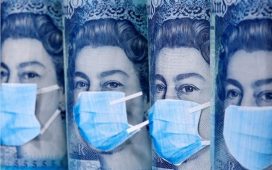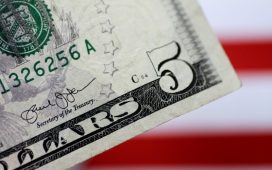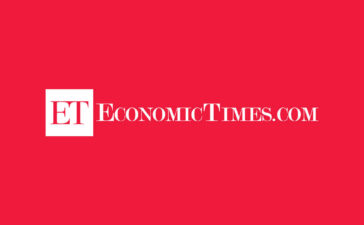
© Reuters. A man holds a dinar currency and a coffee cup in Mitrovica, Kosovo, February 1, 2024. The Kosovo government will ban the Serbian dinar in minority regions despite warnings from the EU and the U.S. that such could fuel ethnic tensions in the volatile north
MITROVICA, Kosovo (Reuters) – Kosovo Serbs in the ethnically divided town of Mitrovica carried on using Serbian dinars on Thursday after the government allowed a transitional phase before the currency is fully outlawed under a ban seen by the West as a possible spur to communal tensions.
Serbia, which does not recognise the independence of its former breakaway province, continues to use the dinar to pay pensions, social assistance and salaries for Serbian parallel institutions in Kosovo, including hospitals and schools.
The Central Bank said early this month that all payments in Kosovo should be done only in euros, suggesting that the Serbian dinar would not be used from Feb. 1.
But after calls by the U.S., Italy, France, Germany and Britain, known as the Quint group, to suspend the decision, the Kosovo government on Wednesday said it would allow a transitional period, although it did not define how long that would be.
“We Serbs get all of our income in dinars,” said Dusan Milunovic from Mitrovica. He said the decision to ban the dinar was of big concern for elderly citizens who get their pensions in dinars.
“Also it is unclear what will happen to those who have loans in dinars,” Milunovic said.
Kosovo’s official currency is the euro, but the majority of its 5% Serb minority community also uses the dinar as part of their refusal to recognise Kosovo’s statehood.
“I use dinars. Serbia is my country and I hope it will remain so,” said Jasna Trajic from Mitrovica.
A European Union spokesperson said in statement on Thursday the EU is concerned about the consequences that the decision to ban the dinar “might have on the daily lives of Kosovo Serbs… in particular on its impact on schools and hospitals.”
Serbia still does not recognise Kosovo’s 2008 independence, and the northern region where half of the 100,000 Serb minority lives has witnessed frequent ethnic violence.
The worst violence culminated in September last year when Serb gunmen attacked Kosovo police in the north village of Banjska, resulting in the death of one police officer and three gunmen.
After 25 years since the war ended the country of 1.8 million is still guarded by NATO troops which reinforced their presence with another 1,000 troops after last year’s violence.










